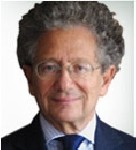 Project Syndicate
Project Syndicate - The annual World Economic Forum is rightly perceived as a global �barometer.� But the superb sunshine in Davos these days cannot avoid the shadows of the financial crisis that have enveloped the world, casting an atmosphere of gloom and doom on this year�s meeting. Today, more than ever, the Forum�s proud motto, �Committed to the improvement of the world,� seems disconnected from reality. It is not confidence that dominates Davos 2008, but rather a sense of impotence, if not bewilderment, at the world�s growing complexity.
In fact, Davos is less a barometer that helps us to understand the deep trends that are shaping the world than a mirror that reflects trendy ideas, worries, and perhaps gossip. From formal debates and informal schmoozing with fellow members of the Davos crowd, one gets a sense of who the American establishment favors to win the next presidential election (Hillary Clinton), predictions for the upcoming referendum in Ireland on the European �simplified� treaty (it will be very close), and French President Nicolas Sarkozy�s international image (not good).
You do not need to go to Davos for this, but in the Swiss mountains these ideas acquire an aura of legitimacy � call it the �I was told in Davos� imprimatur � which explains why political and economic analysts and commentators keep coming back, despite the Forum�s combination of pomposity and intellectual vacuity. The eminent people who pass through are given opportunities only for sound bites, developed thoughts.
As for business leaders, despite the hefty fees they must pay to become members of the �Davos Family,� they, too, keep coming because for them the Forum ultimately represents a time- and money-saving investment. Where else in the world could they meet so many of their potential partners or customers, including heads of emerging states, in one place?
Of course, the danger of Davos lies in this concentrated commingling of the chattering classes and the real world of politics and business. Conformism flows naturally from these encounters and creates a world in which everybody tends to think alike, as if a truly global community could create a global way of thinking, even if positions on how to address the current financial crisis are varied.
What is trendy at Davos this year is to view the crisis as reflecting two deep global trends � for example, the declining clout of the United States. After the war in Iraq and the Bush administration�s slow reaction to Hurricane Katrina, America�s subprime mortgage crisis is perceived by many as simply accelerating the irresistible rise of Asia and the shift from a unipolar to a multipolar world, even if the wider financial crisis will equally affect Asia�s growth.
For countries like China or India, the scaling down of growth from 8% to 5% is nearly the equivalent of a recession in the West. Yesterday, when America sneezed, the world caught a cold. Today, when America catches pneumonia, can Asia only sneeze?
The second trend underlined at Davos is the return of the state. In the latest issue of Foreign Affairs, Forum�s founder and president, Klaus Schwab, asks �How can business help save the world?� But, with the financial crisis hanging over Davos participants� heads like the sword of Damocles, the question is becoming, �Can states and international institutions save business?�
The return of the state, even when it is the power of the European Commission to sanction Microsoft, is on everyone�s lips. Such a return further underlines a growing skepticism about the market and its key actors� infectious and dangerous greed.
This trend, if it is confirmed by reality, could signify the end of what Davos stands for: an open, global, and transparent world. But is the world ready for a return to protectionist policies and nationalist reflexes? Will today�s freedom and transparency, having led to undesired results, result in a return to restrictions on movements of goods, people, and capital?
In Davos this year, great hopes have given way to great apprehensions. How can you pretend to be acting to change the world if you no longer understand it?
Dominique Moisi, a founder and Senior Advisor at Ifri (French Institute for International Relations), is currently a Professor at the College of Europe in Natolin, Warsaw.
Copyright: Project Syndicate, 2008.
www.project-syndicate.org

